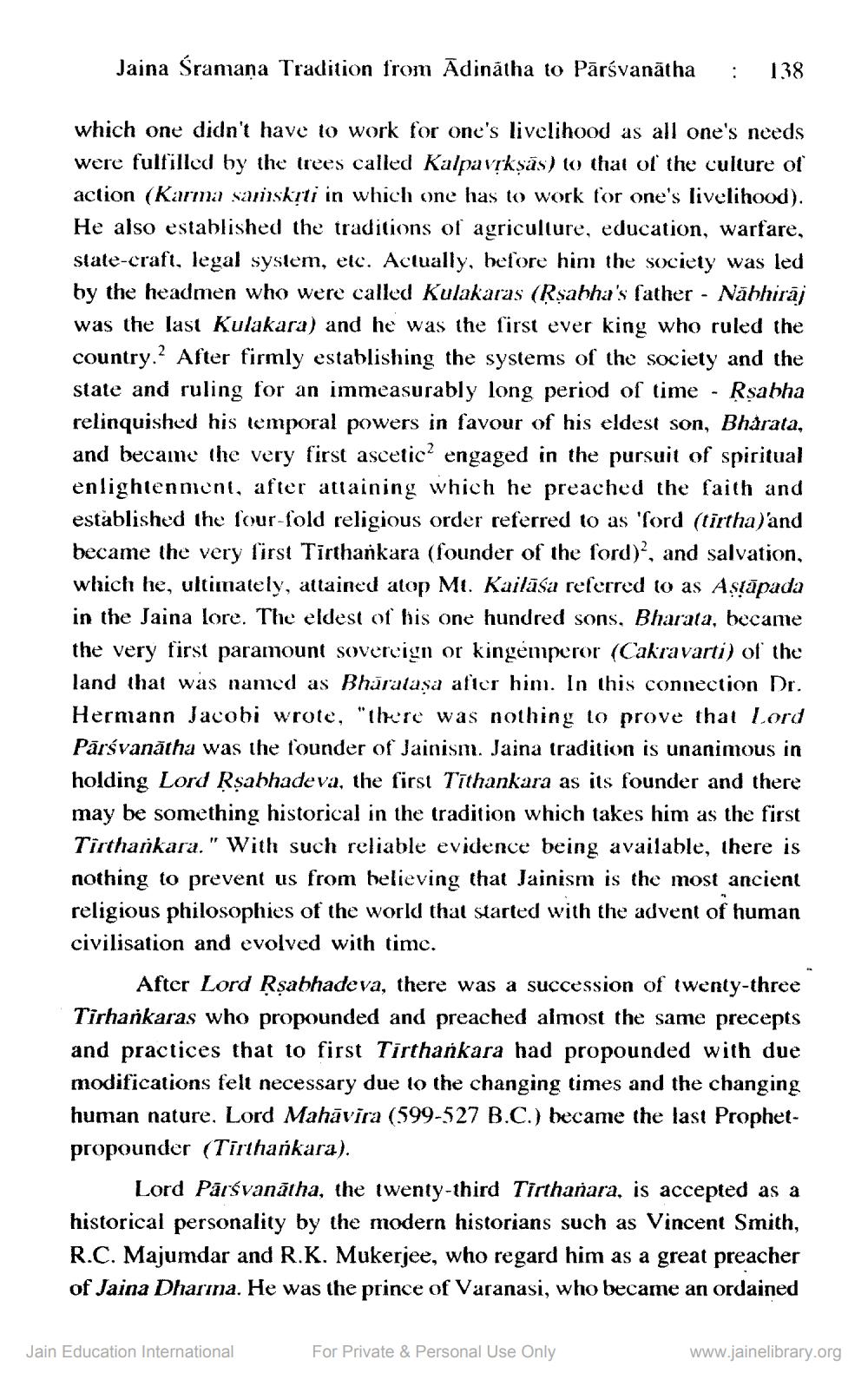________________
Jaina Śramana Tradition from Adinatha to Pārsvanatha : 138
which one didn't have to work for one's livelihood as all one's needs were fulfilled by the trees called Kalpavṛkṣās) to that of the culture of action (Karma samskṛti in which one has to work for one's livelihood). He also established the traditions of agriculture, education, warfare, state-craft, legal system, etc. Actually, before him the society was led by the headmen who were called Kulakaras (Rṣabha's father - Nābhirāj was the last Kulakara) and he was the first ever king who ruled the country. After firmly establishing the systems of the society and the state and ruling for an immeasurably long period of time Rṣabha relinquished his temporal powers in favour of his eldest son, Bharata, and became the very first ascetic2 engaged in the pursuit of spiritual enlightenment, after attaining which he preached the faith and established the four-fold religious order referred to as 'ford (tīrtha) and became the very first Tirthankara (founder of the ford)2, and salvation, which he, ultimately, attained atop Mt. Kailasa referred to as Aṣṭāpada in the Jaina lore. The eldest of his one hundred sons, Bharata, became the very first paramount sovereign or kingémperor (Cakravarti) of the land that was named as Bharatașa after him. In this connection Dr. Hermann Jacobi wrote, "there was nothing to prove that Lord Pārsvanatha was the founder of Jainism. Jaina tradition is unanimous in holding Lord Rṣabhadeva, the first Tithankara as its founder and there may be something historical in the tradition which takes him as the first Tirthankara." With such reliable evidence being available, there is nothing to prevent us from believing that Jainism is the most ancient religious philosophies of the world that started with the advent of human civilisation and evolved with time.
After Lord Rṣabhadeva, there was a succession of twenty-three Tirhankaras who propounded and preached almost the same precepts and practices that to first Tirthankara had propounded with due modifications felt necessary due to the changing times and the changing human nature. Lord Mahāvīra (599-527 B.C.) became the last Prophetpropounder (Tirthankara).
Lord Parsvanatha, the twenty-third Tīrthanara, is accepted as a historical personality by the modern historians such as Vincent Smith, R.C. Majumdar and R.K. Mukerjee, who regard him as a great preacher of Jaina Dharma. He was the prince of Varanasi, who became an ordained
Jain Education International
For Private & Personal Use Only
www.jainelibrary.org




